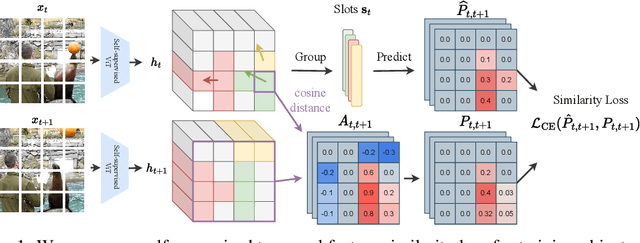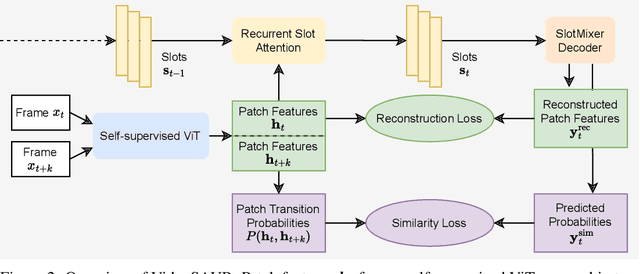Object-Centric Learning for Real-World Videos by Predicting Temporal Feature Similarities
Paper and Code
Jun 07, 2023



Unsupervised video-based object-centric learning is a promising avenue to learn structured representations from large, unlabeled video collections, but previous approaches have only managed to scale to real-world datasets in restricted domains. Recently, it was shown that the reconstruction of pre-trained self-supervised features leads to object-centric representations on unconstrained real-world image datasets. Building on this approach, we propose a novel way to use such pre-trained features in the form of a temporal feature similarity loss. This loss encodes temporal correlations between image patches and is a natural way to introduce a motion bias for object discovery. We demonstrate that this loss leads to state-of-the-art performance on the challenging synthetic MOVi datasets. When used in combination with the feature reconstruction loss, our model is the first object-centric video model that scales to unconstrained video datasets such as YouTube-VIS.
 Add to Chrome
Add to Chrome Add to Firefox
Add to Firefox Add to Edge
Add to Edge